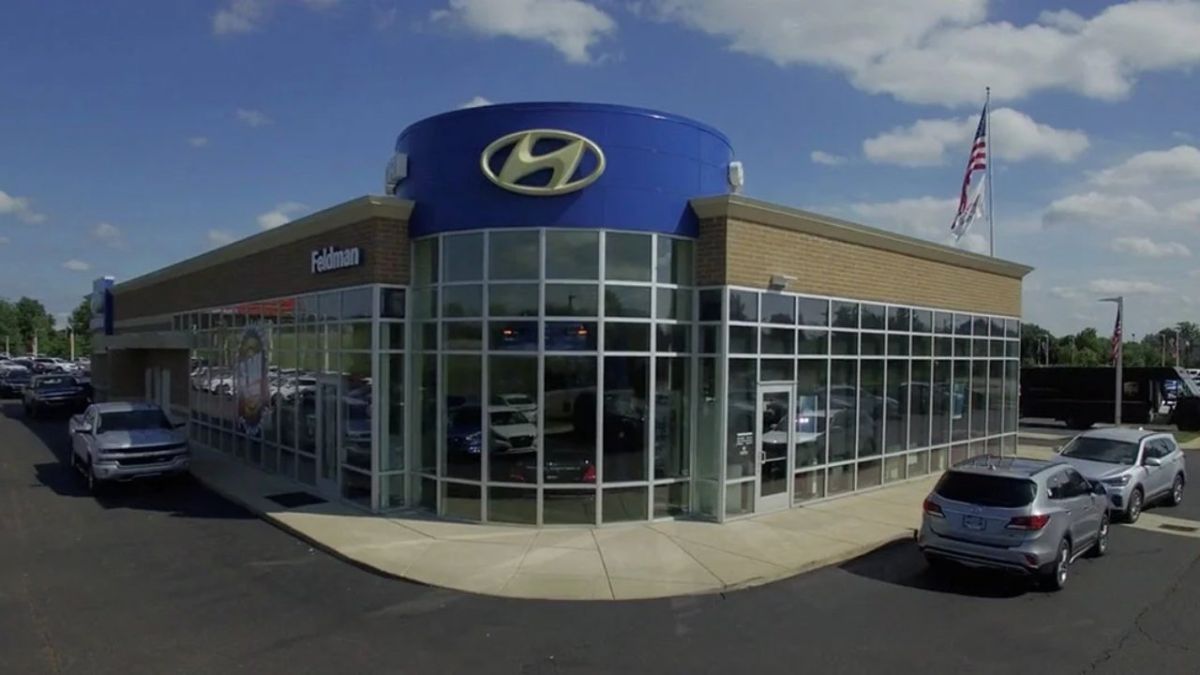Hyundai and Kia have agreed to a \$62.1 million settlement to resolve a class action lawsuit alleging that defective airbag control units in certain vehicles could fail in a crash, leaving drivers and passengers unprotected.
The lawsuit centered on ZF-TRW airbag control units, which, according to plaintiffs, were prone to electrical short-circuits that could prevent airbags and seatbelts from working during a collision. Hyundai and Kia denied wrongdoing but agreed to the settlement to avoid what could have been a lengthy and expensive legal battle.
The deal represents not only a financial payout for vehicle owners but also broader commitments from the automakers, including extended warranties, free inspections, and reimbursement programs.
What the Settlement Provides
The settlement provides different types of relief depending on the type of vehicle and the circumstances of the claim.
1. Cash Payments
- Up to \$350 for vehicles that were previously recalled for airbag issues.
- Up to \$150 for vehicles not included in the recall list but still potentially affected.
- Reimbursement for out-of-pocket expenses such as towing, rental cars, childcare, lost wages, or other repair costs linked to the defect.
2. Extended Warranty
- Owners of vehicles repaired under a recall will now get a 10-year warranty on any parts replaced. This warranty starts April 14, 2025 and covers airbag-related repairs going forward.
3. Loaner or Rental Cars
- For recalled vehicles awaiting repair, Hyundai and Kia will cover the cost of a rental or loaner car.
- If additional recalls occur later, even owners of previously unrecalled vehicles may qualify for a loaner.
4. Inspections and Outreach
- Hyundai and Kia will sponsor expanded inspection programs and consumer outreach campaigns to ensure that repairs are completed.
Together, these benefits are designed to cover not only direct financial losses but also peace of mind for drivers worried about whether their airbags will deploy in a crash.
Who Can Claim Settlement Benefits?
The settlement applies to people who owned or leased one of the affected Hyundai or Kia vehicles in the United States on or before April 14, 2025. Vehicles fall into two categories:
Recalled Vehicles
- Hyundai Sonata (2011–2013)
- Hyundai Sonata Hybrid (2011–2012)
- Kia Forte and Forte Koup (2010–2013)
- Kia Optima (2011–2013)
- Kia Optima Hybrid (2011–2012)
- Kia Sedona (2011–2012)
Unrecalled Vehicles
- Hyundai Sonata (2014–2019)
- Hyundai Sonata Hybrid (2013–2019)
- Hyundai Kona (2018–2023) and Kona N (2022–2023)
- Hyundai Veloster (2019–2021)
- Kia Forte (2014–2018) and Forte Koup (2014–2016)
- Kia Optima (2014–2020)
- Kia Optima Hybrid (2013–2016)
- Kia Sedona (2014)
These lists show that the settlement affects millions of drivers nationwide, including those whose vehicles were never formally recalled but may still have the defective component.
How to File a Claim
Owners and lessees who wish to participate must file a claim form by March 29, 2027. The process can be completed either:
- Online through the official settlement website, or
- By mail using printed claim forms.
Applicants will need to provide:
- Proof of ownership or lease (vehicle registration, insurance, or purchase documents).
- Receipts for any out-of-pocket expenses if seeking reimbursement.
- A unique ID (if provided in mailed notices) to streamline the claim.
Even if no notice was received, eligible drivers can still submit claims as long as they provide sufficient documentation.
Key Deadlines to Remember
- Opt-Out or Objection Deadline: August 25, 2025. Owners who don’t want to participate can opt out or file objections by this date.
- Final Court Hearing: September 2025. A judge will decide whether to approve the settlement.
- Claim Submission Deadline: March 29, 2027. Claims must be filed by this date to qualify for benefits.
Owners who stay in the settlement waive the right to sue Hyundai or Kia over these same issues in the future. However, those with injury or property damage claims remain free to file lawsuits independently.
Legal Fees and Class Representative Awards
The attorneys representing the class are requesting up to 33% of the settlement fund for fees, along with reimbursement for litigation costs. Additionally, class representatives who participated in the case may receive up to \$2,500 each for their role.
Importantly, the settlement does not cover personal injury or property damage—only costs directly tied to the airbag defect.
Why This Case Matters
The settlement highlights ongoing concerns about automotive safety and accountability. Airbags are among the most critical safety features in modern vehicles, and any failure can be life-threatening.
This lawsuit comes after a decade marked by major automotive scandals—from Takata’s exploding airbags to recalls involving ignition switches, brakes, and electronic systems. Each case underscores the importance of strict oversight and timely recalls to protect drivers.
While Hyundai and Kia did not admit fault, the \$62.1 million payout and warranty extensions demonstrate both the financial and reputational stakes when automakers face questions about safety.
Reactions from Drivers and Advocates
Consumer safety advocates welcomed the settlement as a victory for drivers, though some noted that cash payouts—maxing out at \$350 per recalled car—may not feel sufficient compared to the risks.
Many drivers expressed frustration at the idea of defective airbags in vehicles marketed as safe, while others were relieved that warranties and inspections were included to ensure long-term protection.
For Hyundai and Kia, the settlement represents an opportunity to rebuild trust with customers, especially in the competitive North American market.
Broader Implications for the Auto Industry
The case also raises questions for the auto industry at large:
- How quickly should manufacturers act when potential defects are identified?
- Should more unrecalled vehicles be proactively inspected, even before lawsuits emerge?
- How can companies balance customer trust with the legal risks of admitting fault?
The Hyundai and Kia settlement may encourage other automakers to adopt more aggressive recall strategies and strengthen warranty protections, knowing that delaying action can lead to larger payouts down the line.
Looking Ahead
As the September 2025 final hearing approaches, Hyundai and Kia drivers will be watching closely. If approved, the settlement will provide immediate relief and long-term coverage through inspections and warranties.
Owners who qualify but fail to submit claims by March 29, 2027 risk missing out on benefits. Legal experts stress the importance of reviewing claim instructions carefully to maximize reimbursements.
For now, the case serves as both a cautionary tale for automakers and a reminder to consumers to stay informed about recalls and class action settlements.
5 FAQs
Q1. Which Hyundai and Kia vehicles are included in the settlement?
The settlement covers a wide list of recalled and unrecalled vehicles sold or leased in the U.S. between 2010 and 2023.
Q2. How much money can I get from the settlement?
Eligible owners may receive up to \$350 for recalled vehicles, \$150 for unrecalled vehicles, plus reimbursements for out-of-pocket expenses.
Q3. Do I need to file a claim to receive benefits?
Yes. Owners must file a claim online or by mail by March 29, 2027, with proof of ownership and receipts for reimbursement requests.
Q4. What if I don’t want to be part of the settlement?
You may opt out by August 25, 2025. Those who remain in the settlement give up the right to sue Hyundai or Kia over these same issues.
Q5. Does the settlement cover injury claims?
No. The settlement only covers financial losses, inspections, and warranties. Those with injury or property damage claims can still file separate lawsuits.












